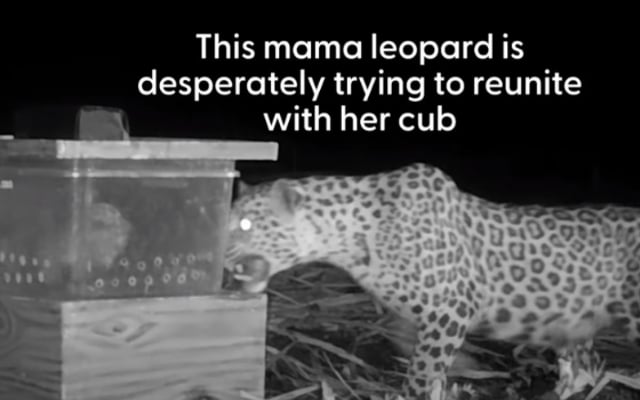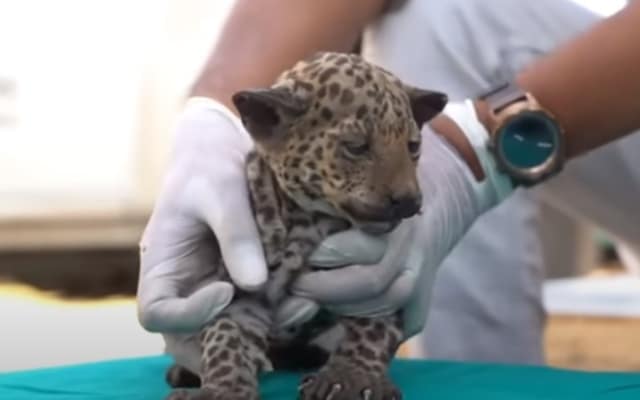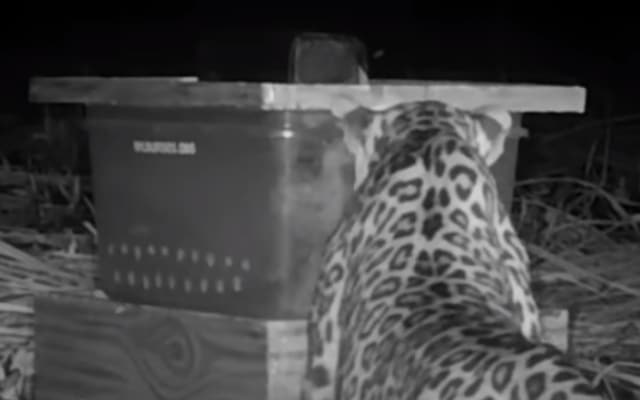In India, deep within the towering sugarcane fields, a mother leopard shows her strong maternal instincts.
To keep her cub safe while she hunts, she cleverly hides it among the thick stalks.

This smart move, however, leads to an unexpected turn of events. As the day goes on, the peaceful sugarcane fields are disturbed by the start of the harvest.
Farmers, unaware of the hidden cub, use heavy machines to cut and gather the sugarcane. These noisy and powerful machines threaten the cub with physical harm and could separate it from its hunting mother.
During this chaos, Wildlife SOS, an organization known for rescuing and caring for distressed animals, steps in. They find the leopard cub, now alone and slightly burned from the harvesting operations.
The team quickly gives the cub medical care, treating its burns and ensuring its survival.

With the cub’s immediate needs taken care of, Wildlife SOS plans a careful reunion with its mother. They place the cub in a clear enclosure near where it was found. This allows the mother to see and smell her cub without direct contact, reducing stress for both animals.
The climax of this story is emotional and intense. The mother leopard, upon seeing her cub through the clear enclosure, shows a mix of caution and strong maternal desire. Caught on camera, she first approaches carefully, then more determinedly as she tries to reach her cub. The Wildlife SOS team, watching closely, eventually opens the enclosure. The reunion that follows is tender—a gentle check and a reassuring nudge from the mother, and a loving response from the cub, recognizing its protector.
This touching reunion highlights the success of the rescue and care effort, and also points out the larger challenges wildlife faces from human activities like farming. It emphasizes the important work of groups like Wildlife SOS, whose efforts help reduce the negative impacts of human activity on natural habitats.

Beyond the immediate happiness of the rescue, the story of the mother leopard and her cub makes us think about the resilience of wildlife and the crucial role of human empathy and proactive conservation efforts.
As the mother and cub disappear back into the wilderness, the scene leaves a lasting impression of the delicate balance of nature and the need for coexistence.
